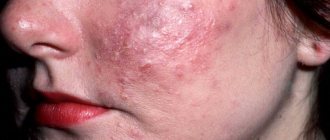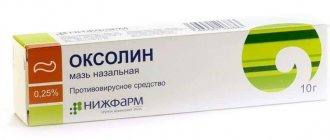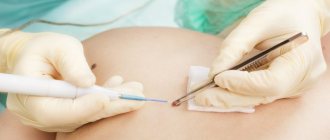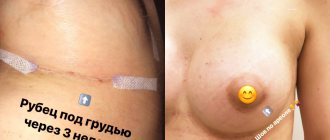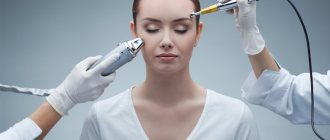Classification of viruses
According to the existing international classification, primary and recurrent genital herpes . The latter, in turn, is divided into typical and atypical clinical forms and asymptomatic viral shedding.
The term “genital herpes” arose at the beginning of the 20th century. to designate the lesion on the skin and mucous membranes of the external genitalia. With the development of virological research methods, information about “atypical” forms of the disease began to appear. The diagnosis “atypical form of genital herpes” is made by gynecologists to designate a chronic inflammatory process of the internal genitalia (colpitis, vulvovaginitis, endocervicitis, etc.) in the presence of a laboratory confirmed herpetic nature of the disease, in contrast to the “typical” picture of the disease, in which on the mucous membrane These organs have lesions with vesicular-erosive elements. At the same time, herpetic lesions of the urethra, anal area and rectal ampulla fall out of this group, although these organs are anatomically and functionally closely related to the genital area.
Research conducted at the Herpetic Center has shown that diagnosing the HSV virus is now complicated due to the fact that in 65% of cases the disease is atypical.
Diagnostics
To diagnose herpes virus infection, use:
- PCR (polymerase chain reaction) - detection of the genetic material of the virus.
- ELISA (enzyme-linked immunosorbent assay) – detection of virus antigens.
- Virological research.
- Immunological studies - identifying immunity disorders that created conditions for the development of infection.
For herpesvirus infection, you can examine blood, urine, feces, saliva, swabs and smears from lesions. Modern diagnostic methods are imperfect and do not allow obtaining a 100% accurate result. The modern equipment of the multidisciplinary CELT clinic allows us to achieve the maximum degree of accuracy.
Complications after recovery
The more severe the infectious disease, the higher the chance of complications after recovery. Thus, approximately a third of those who have recovered experience complications from the central nervous system and the psyche.
Many survivors talk about fatigue and malaise, difficulty finding words, remembering, and decreased concentration. Some describe their condition as a kind of fog after COVID-19. Researchers report that one in three people regularly experience headaches and dizziness, loss of smell and taste, and muscle weakness.
“Many negative psychological reactions appear after recovery,” Olga Markina shares her experience. “Sometimes symptoms do not appear immediately, but several months after recovery. Patients experience malaise, drowsiness, and decreased stamina. Many people experience anxiety and fear of re-infection, even to the point of hypochondria and phobia.”
A professor of psychiatry at the University of Maryland reports that he believes that in about 30-50% of those who recover, there is an increased risk of future mental health problems, such as depression and anxiety. Also, about half of people who had symptoms of coronavirus suffer from insomnia and depressed mood.
Recent studies say that one in ten coronavirus survivors develop post-traumatic stress disorder, and a third develop depression and anxiety disorders. In addition, 54% of people develop chronic fatigue syndrome within three months of infection.
A new but not yet peer-reviewed study reports that people who recover from coronavirus are more likely to experience intracranial hemorrhage, ischemic stroke, parkinsonism, Guillain-Barré syndrome, dementia and insomnia than those who recover from other common infections, including influenza.
Reminder in case of illness
It must be remembered that when a rash appears, a person becomes acutely contagious. Moreover, not only those around him can suffer, but also the sick person himself. For example, from a lesion on the lips with dirty hands, the herpes virus can be carried into the eyes or genitals.
Therefore, it is important to follow the following rules
- Do not touch lips affected by rashes. If you touch them, wash your hands thoroughly.
- Use your own towel and utensils.
- If your lips are affected, do not squeeze the blisters or pick off the scabs. This may cause additional skin infection.
- Refrain from kissing and oral-genital contact.
- If you wear contact lenses, do not wet them with saliva to moisten them.
- Apply antiviral cream to your lips not with your fingers, but with cosmetic sticks.
